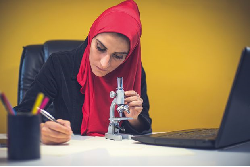March 2018 Research, Science and Knowledge
Read the articles selected in March 2018
Where the EU should invest in the future
Source: http://www.eua.be
In Europe, there is a problem of underfunding excellent research, given the low success rates of European programmes. Research and Innovation should be considered a top investment priority supporting all European policies and combined with national and regional investment.
E-learning: delivering knowledge in digital age
By Danijela Kardaš, Bojan Knežević etc
Source: Journal of International Scientific Publications, Volume 15, 2017
This paper reports the transfer of knowledge occurred within a network of universities through the project HERD QUIMSEE. The experiment has employed multifunctional rooms, as flexible spaces for e-learning, a tool to improve the quality of learning and the access to education.
Read more:
https://www.scientific-publications.net/get/1000027/1504207262484093.pdf
Schools at the crossroads of innovation in cities and regions
Centre for Educational Research and Innovation
Fonte: http://www.oecd.org/
Innovation means not only to enjoy the availability of computers in schools but a change in the ecosystem of learning, to be opened up to local economies and communities. It means to harness technology to improve productivity, in terms of students’ performances and equal access to education, compared with the resources invested.
Read more:
https://www.timeshighereducation.com/news/new-blockchain-platform-aims-shake-research-citations
Guidelines to the Rules on Open Access to Scientific Publications and Open Access to Research Data in Horizon 2020
By the European Commission
Source: http://ec.europa.eu
This paper explains the rules that users of Horizon 2020 have to follow when benefiting from publications and data in open access. The Horizon 2020 strategy aims to improve research quality and efficiency, speeding up innovation in a more transparent process involving citizens and society.
Open science in the EU- Will the astroturfers take over?
By Pal Magnus Lykkja &Jan Petter Myklebust
Source: University World News, 17 March
The EC is planning to establish a platform for open access by 2020. The impact this could have on science is a true revolution, similar to what happened after the print invention, but the major science publishers make resistance to maintain their level of profits.
Read more:
http://www.universityworldnews.com/article.php?story=20180317044918836
Enhancing Quality: from policy to practice
By Anna Gover & Tia Loukkola
Source: http://www.eua.be
The Standards and Guidelines for Quality Assurance in the European Higher Education Area (ESG) are a guidance on what is to be considered a good quality learning environment, promoting accountability and transparency of institutions in relation to their own mission and the aims of the programmes, and training an active citizenship.
Women in gender-equal countries less likely to gain STEM degrees
By Sophie Inge
Source: Times Higher Education, 23 February

A study has revealed this educational paradox. Although it can be explained by the economical concerns of women in the gender-unequal countries, evidently it also requires interventions focused on promoting the female presence in the STEM.
Read more:
https://www.timeshighereducation.com/news/women-gender-equal-countries-less-likely-gain-stem-degrees
Les neurosciences veulent jouer aux apprentis sorciers
By Véronique Radier
Source: L’Obs, 8 March
In France, a government’s project intends to face the scholastic failure with the progress in neurosciences, identifying the biological roots outside the social and familial causes, at risk to medicalizing the class environment and the hegemony of the machines on the human sciences.
Towards a more equal, inclusive higher education
By Patrick Blessinger, Jaimie Hoffman & Mandla Makhanya
Source: University World News, 7 March
The pace of change moved by the fourth industrial revolution requires universities to prepare students and retrain workers for jobs that don’t exist today. We have all to go back to school to learn, regardless of age or background. Universities must adapt to the demand for ongoing learning.
Read more:
http://www.universityworldnews.com/article.php?story=20180306102731111
L’Italie, la diaspora et la fuite des cerveaux
By Céline Zünd
Source: Le Temps, 2 March
Italy is losing a new generation of emigrants: more than the half are graduates, one third has a degree, between 10 and 15% hold a Ph.D. The stable rise in Italian PhDs abroad is due to the difficulty to fund their own research in Italy, where the post-doc awards are low.
Unesco’s soft power today
Source: http://www.unesco.org
Gender equality has been always fought using the soft power of words. Yet gender equality is a battle, but for a change in mind-sets that will benefit all us, men and women, breaking stereotypes and well-established power systems. Women’s participation in media, politics, and business is a challenge to the status quo.
New NSF rules on sexual harassment leave many questions unanswered
By Jeffrey Mervis
Source: Science, 3 Marzo

The National Science Foundation in Virginia has announced a new policy to tackle sexual harassment in academia. But the issue turns out to be legally more complex than the terms and conditions institutions must agree when they accept an NSF award.
Read more:
Race- and gender-based bias persists in US science
Source: Nature, 21 February
After a poll run in the USA in summer 2017, sexual discriminations and racism seem more recurring among researchers than in other professions. Also, sexual harassment is a persistent issue in the male-dominated workplaces.
Read more:
https://www.nature.com/articles/d41586-018-02175-y
Research-intensive universities “offer best maternity pay”
By Rachael Pells
Source: Times Higher Education, 8 February

The UK’s research-intensive universities offer maternity leave packages at full salary and longer than institutions more teaching-oriented since they have “so much invested in each individual”, and because of the negative consequences of losing staff part of a research group.
Read more:
https://www.timeshighereducation.com/news/research-intensive-universities-offer-best-maternity-pay
Sylvia Earle, une vie pour l’océan ou 7000 heures sous les mers
By Florian Delafoi
Source: Le Temps, 16 January
The magazine Time mentioned her among the women that have changed the world. In her field, she understood before many bearded male colleagues the importance to explain the scientific discoveries to the general public, consecrating her long career as explorer and scientist to the oceans’ safeguard.
Coherent policies for Europe beyond 2020
Source: http://www.eua.be
Universities play a key role in regional development because they are the builder of territorial network and strategic partner in the “entrepreneurial discovery process” which identifies the smart specialization skills most relevant to the local development.
The Energy Challenge: why policymaking needs universities
Source: http://www.eua.be/
The Energy Transition must be addressed by focusing on the future of energy research, innovation and education. Eua calls on policy-makers to harness the whole knowledge produced by universities if we really want to change the way we produce and consume.
Open-access charges create new inequalities in publishing
By Rachael Pells
Source: Times Higher Education, 26 February

A database of 1352 articles on global health shows that researchers from low-level ranked institutions and with fewer resources are disadvantaged in publishing in open access journals imposing charges for the article processing, what is opening up new inequalities in academia.
Read more:
https://www.timeshighereducation.com/news/open-access-charges-create-new-inequalities-publishing
Physical health and well-being in children and youth
By Rush Aston
Source: http://www.oecd.org/
This paper highlights the impact of physical health and well-being on education performances and the importance of education in a healthy development, giving evidence of how institutions can act effectively to influence the youngs’ behaviors addressing their risk factors.
See attached
The challenge to higher education internationalisation
By Philip G. Altbach & Hans de Wit
Source: University World News, 23 February

The insurgent nationalist-populist argument of anti-internationalism and anti-immigration, as well concerns about academic freedom and the monopoly of English in university teaching, call on for a change of approach in higher education globalization, with a shift from quantity to quality.
Read more:
http://www.universityworldnews.com/article.php?story=20180220091648602
Info
- Pubblicato il : 05/04/2018 Modificato il : 04/04/2019
Allegati
- Guidelines to the Rules on Open Access pdf
- Where the EU should invest in the future pdf
- L Italie et la fuite des cerveaux pdf
- Les neurosciences veulent jouer aux apprentis sorciers pdf
- Enhancing quality pdf
- Sylvia Earle pdf
- Unesco's soft power today pdf
- The energy challenge pdf
- Coherent policies for Europe beyond 2020 pdf

